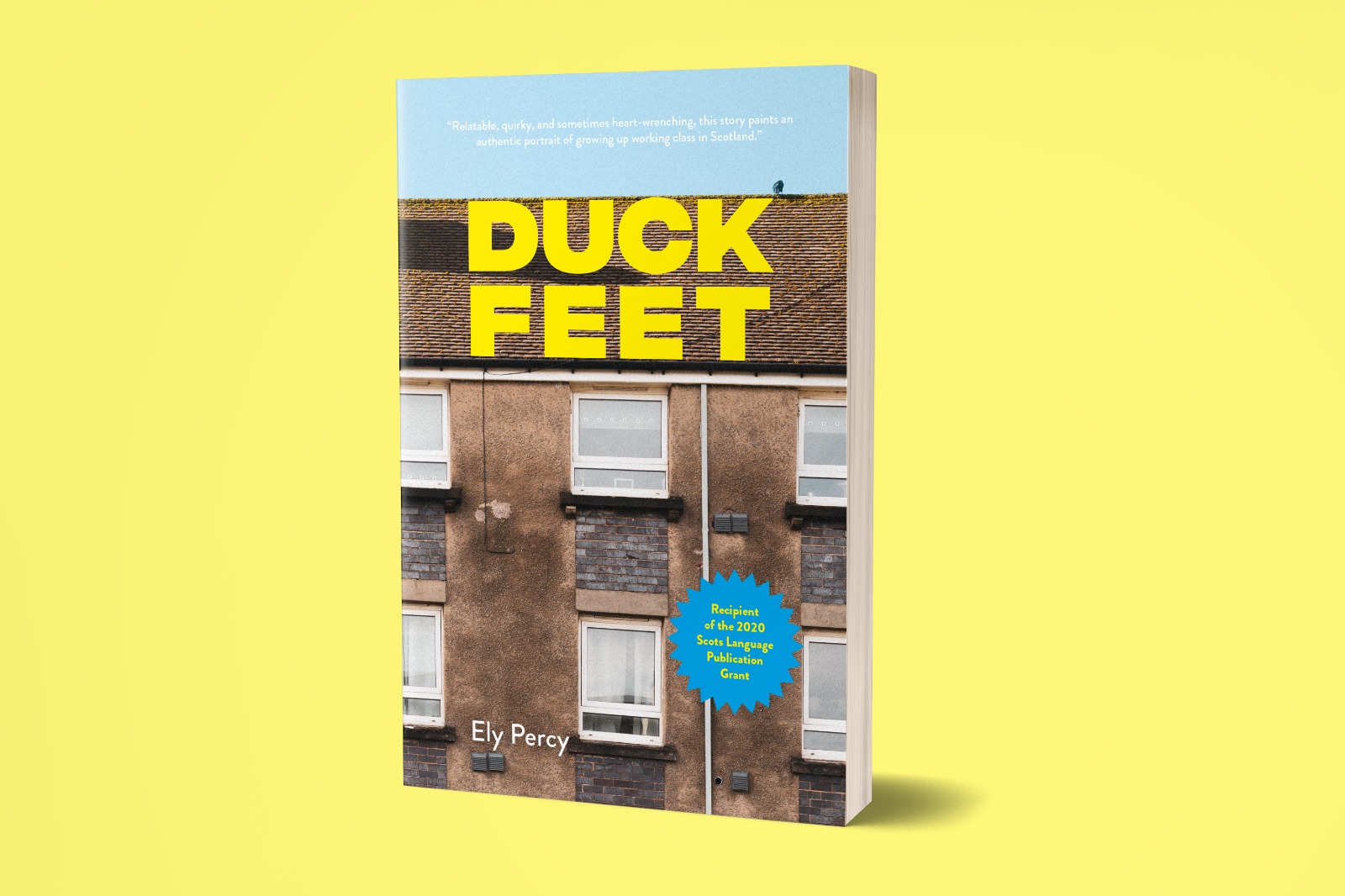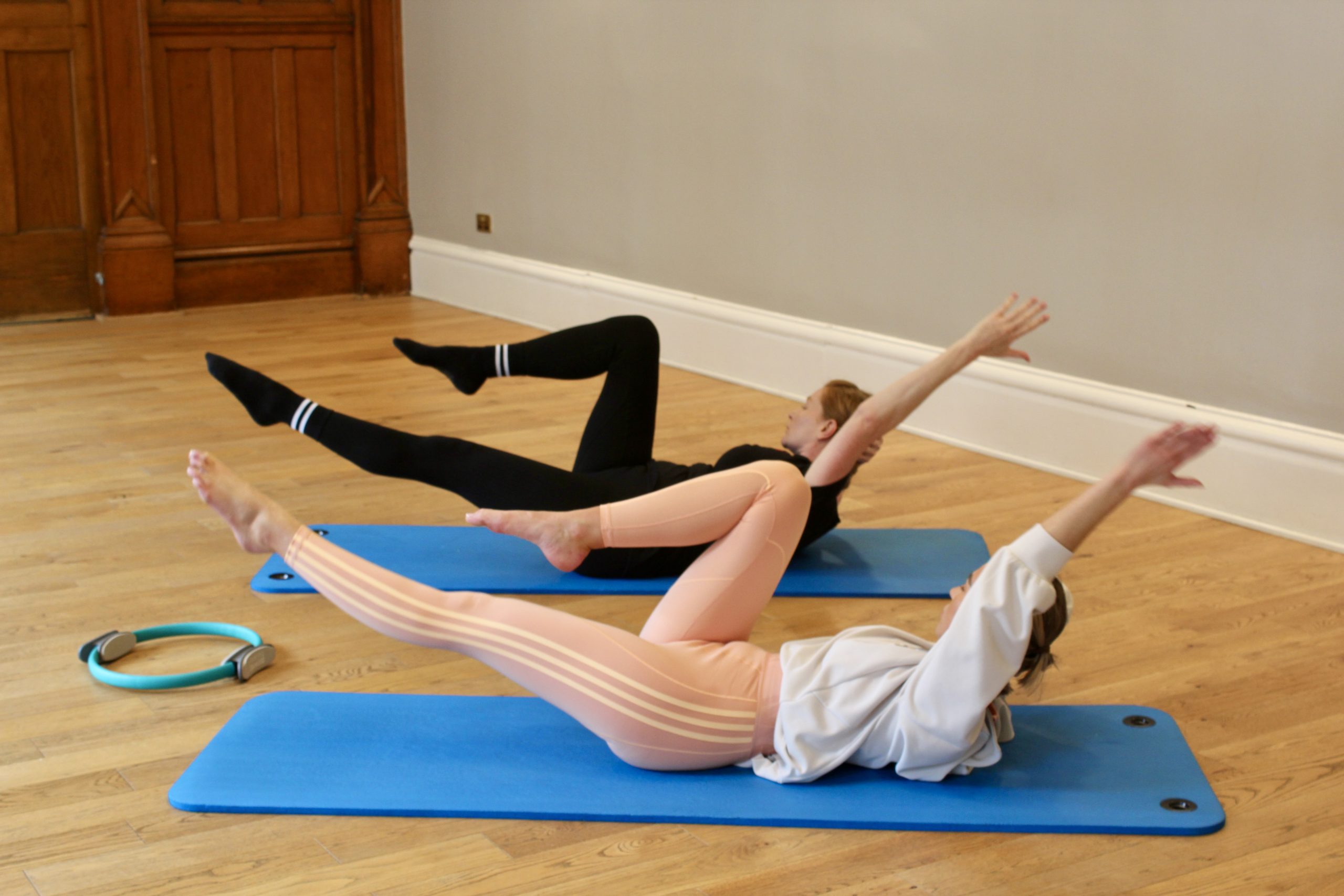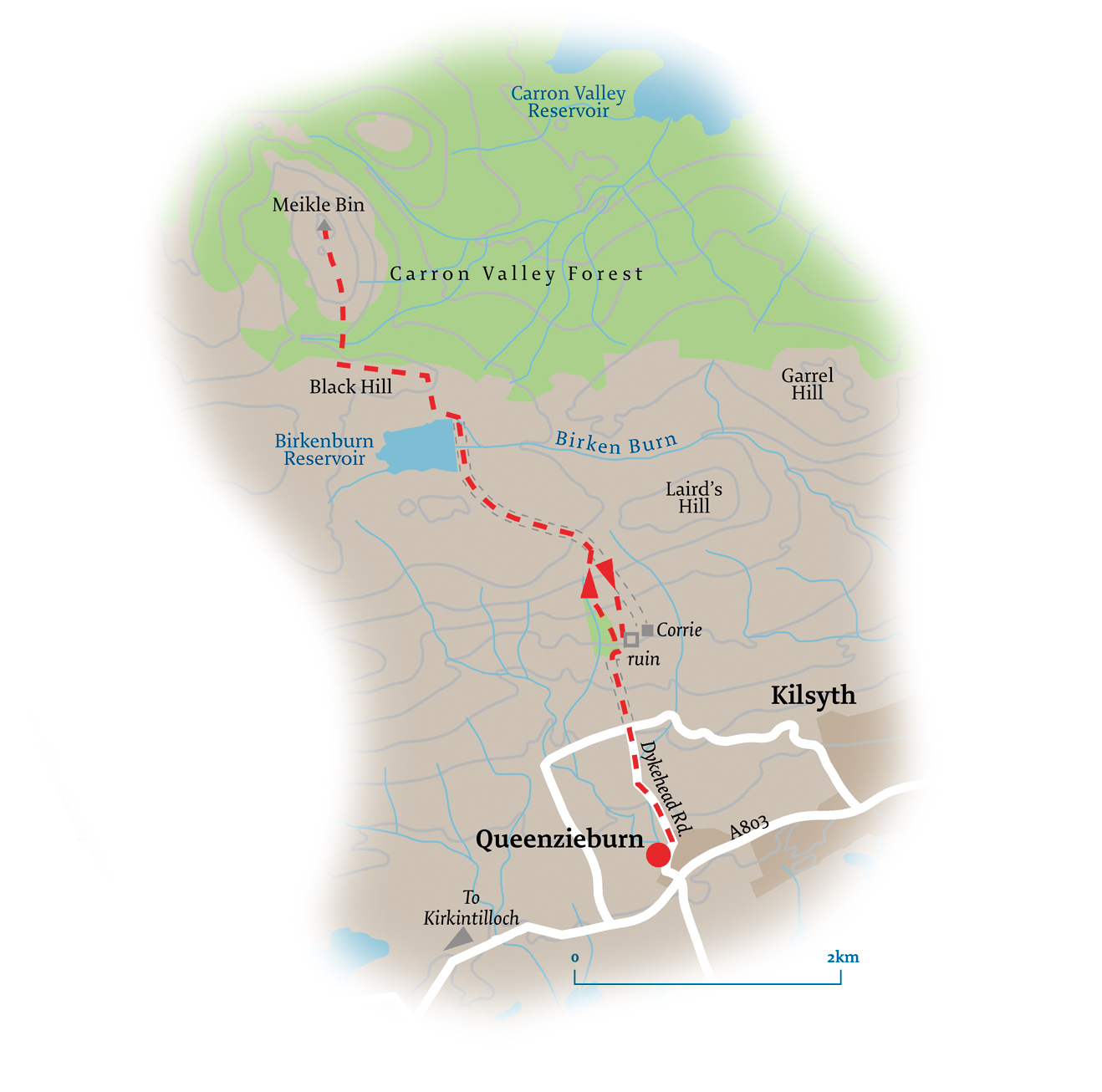Kirsty Campbell is so immediately candid at the start of Duck Feet that it would be easy for the reader to imagine we are midway through a conversation with someone we’ve met before.
“Ma da’s got bad feet,” the twelve year old divulges before explaining that he wears steel cap toe shoes and can’t swim. Kirsty is due to start her own swimming lessons at school and wants someone in her family to help her practice but, beyond that, she also sees that her dad’s feet are holding him back in his life: “Ma da’s never paddult in the sea or walked alang the beach an felt the sand atween his toes; he’s never took his shoes aff on a hot day an run bare foot across a scorchin hot pavement…” Later in this opening chapter, amongst a sea of twenty and fifty length acknowledgements for her fellow school pals, including “ma best pal Charlene…done a hunner bliddy lengths,” Kirsty is awarded a medal ‘For Outstanding Personal Endeavour’ for taking off – as she calls them – her “stupit rubber airm bands.” And she succeeds in convincing her dad to sign up for swimming lessons.
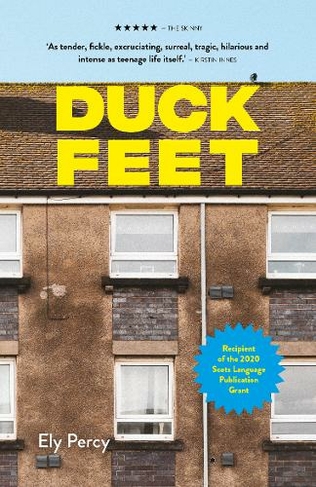
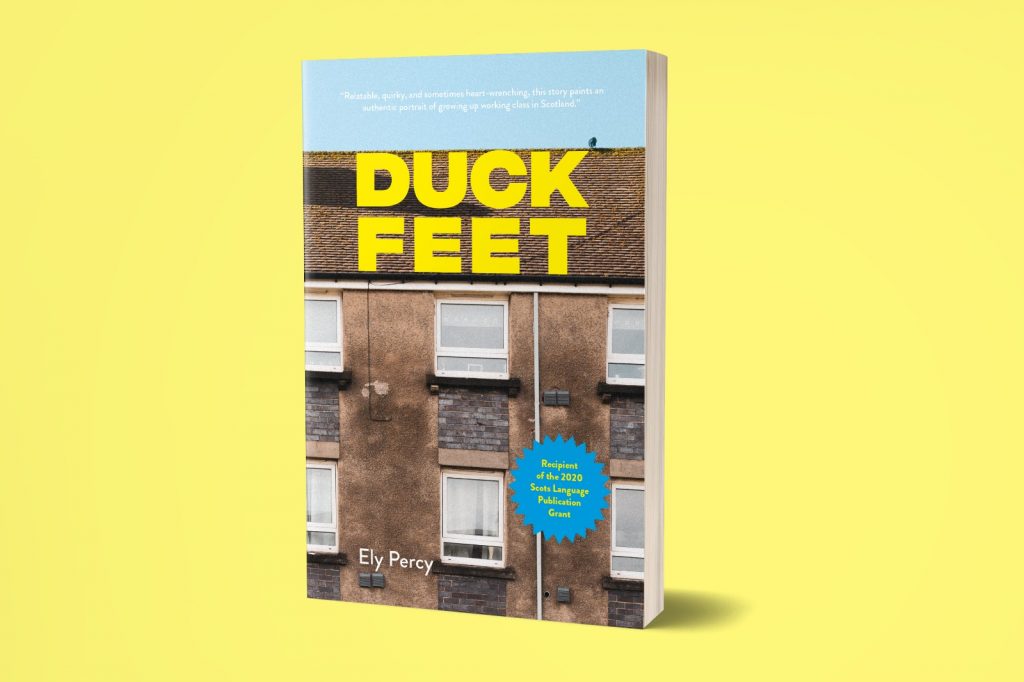
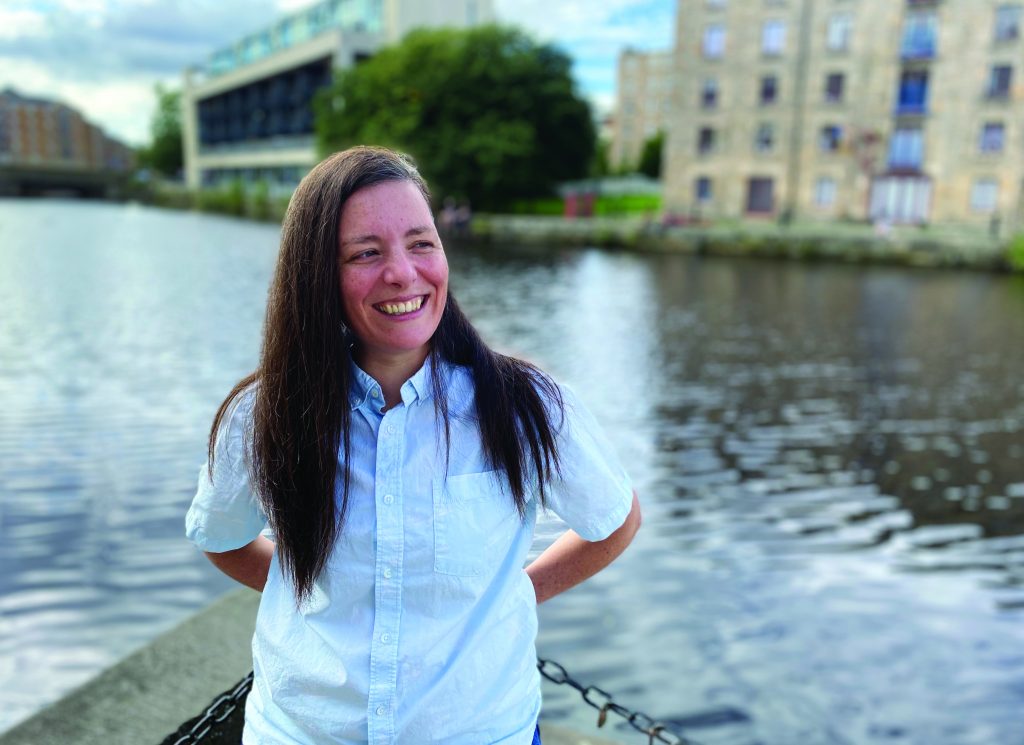
A few pages into Ely Percy’s Duck Feet and we ourselves have been plunged into Kirsty’s world as she tries to find her own feet during the exhilarating highs and painful – sometimes heartbreaking – lows of growing up and moving from first to sixth year. Through her hilarious, matter-of-fact and often self deprecating lens, Kirsty quickly brings us up to speed with the daily events at Renfrew Grammar School, the status of rollercoaster friendships that week, and the nuances of any latest conflict, including her own with long-standing best friend, Charlene Clark.
Kirsty isn’t the only one trying to make sense of her ever changing world and her place in it. Behind an armour of stoicism, banter and quick-witted deflections many of her classmates are battling too many complex issues for supposedly carefree days, from racism and eating disorders, to bullying, drugs and sexuality. These young people are carrying the heavy weights of living in an insular working class community where everyone knows each other, often by their families reputation; from teachers who have often taught two generations of the same family to neighbours deciding you’re “a bit posh’ if you still have a dad that lives at home. Percy is both bold and sensitive in showing their readers how challenging, claustrophobic – and sometimes just utterly defeating – such an environment can be as your starting point.
One of Percy’s many beautiful observations about adolescence in Duck Feet is the incompatibility between how teenagers appear and what they carry internally. By establishing such a unique, honest and endearing voice through Kirsty, Percy’s readers become familiar with the awkwardness and embarrassment she often feels; when she isn’t allowed to get a part-time job; when she doesn’t receive a valentine’s day card in the post and – a particularly affecting scene – when her dad takes a cleaning job at the public toilets near her school in order to provide for his family, much to Charlene’s amusement. Yet despite her inner self critic inhabiting much of her headspace, Kirsty actually seems well-liked, respected and often influential in her self-assurance and shaping beliefs, whether it be inspiring her dad to start swimming lessons, successfully campaigning for better vegetarian options on the school menu or telling her troubled friend Charlene when she has gone too far.
Through showing us all the seismic pressures weighing on teenagers’ shoulders, Percy explores all the difficult, intense emotions that teenagers feel and try to hide away with such compassion and care – while often keeping humour in nearby reach.
Can you tell us how Duck Feet came about?
Duck Feet started as a short story that I wrote in response to a call-out for new writing on the theme of ‘shoes’ in 2004. I was in my parents’ living room writing a list of all the various footwear I could think of … brogues, high heels, steel toe caps… when my dad came in with a basin of water to steep his feet. I heard this voice in my head saying ‘Ma da’s got bad feet…’ and that was it – that was Kirsty’s Campbell’s voice, she came out of nowhere and she wouldn’t shut up!
After that, I wrote another story about Kirsty struggling with her French lessons, then one about social dancing… a year later I had sixty-five of them.
I was absolutely delighted when Monstrous Regiment approached me in 2020 to ask if I’d be interested in turning my Duck Feet stories into a novel. Although I published more than half of them individually in small press magazines over the course of sixteen years, I hadn’t been able to find a publisher willing to take on the whole collection. It was hard work doing the novelisation though: it took another full year, a complete structural rewrite and an extra twenty thousand words added to the manuscript.
Are there many parallels between you and Kirsty?
Kirsty and I both grew up in the same housing scheme in Renfrew and we share some of the same values, but our high school experiences were dissimilar in a lot of ways because I was a social misfit who got bullied for being different whereas Kirsty – although she would never have classed herself as one of the ‘popular people’ – got on well with nearly everyone.
I think being everyone’s pal has its own problems though. Kirsty often finds herself being the peacemaker or the go-between, and more often than not, it’s Charlene – her ‘best-pal-since-primary-wan’ – who is at the heart of these dramas. This was out with my own experience, as was having to fight to keep a best friend from an interloper!
Kirsty joins a youth theatre group but struggles to see how it may lead to anything and often frets that doesn’t know what she wants to do with her life. Is this just part of her journey in building her identity or are geographical and economical circumstances a barrier in imagining possibilities, do you think?
This is one of the things that Kirsty and I did have in common. I started going to youth theatre in Paisley when I was fifteen and the thing that made it accessible was that it only cost a pound a week to take part, and it only took a few minutes to get there by bus. There were kids from all different backgrounds at PYT, and some of them went to posher or private schools, but there were also kids who came from other housing schemes in areas considered to be ‘deprived’.
I was never encouraged to pursue drama as a career – although at one point I did want to be a playwright! The folk at PYT who went to posh schools would be talking about their private singing and violin lessons and how they were going to go the RSAMD to study Acting or Musical Theatre when they finished school, and they were so sure of themselves, but this was a totally unthinkable career path for a kid from a working-class background. A teacher at school once told my parents that I’d be ‘lucky to get a job packing shelves in Tesco’. And the one time I suggested to my mum that I might like to audition for a Contemporary Theatre course (it was the performance poetry and stage fighting classes that drew me in) she looked at me in absolute horror and said, ‘but what’ll you do for money?’
Has this story resonated as much with older readers as young adults?
Duck Feet was never intended as a YA novel, but I know that it’s gone into a few school libraries in Scotland and the Scottish Book Trust made it their book of the month for teenagers. I think it makes a good cross-over novel for both adults and older teenagers because it covers a lot of issues such as bullying and peer pressure as well as pregnancy, exam stress, underage drinking and coming out, and anyone who has ever attended a public high school will be able to relate to these things on some level. Most of the feedback I’ve had is from folk in their early thirties – around about the same age as Kirsty would be now – and they’ve all said they loved it because of the nostalgia.
Which writers have inspired you in your writing?
Anne Donovan, Liz Lochhead, Jim Kelman, Tom Leonard, Agnes Owens, Janet Paisley, Janice Galloway… the list goes on… mostly Scottish working-class writers who’ve written about being Scottish and working class.
I also love Raymond Chandler’s hard-boiled detective novels.
Have you been reading much during lockdown? Do you have any recommendations to share?
I haven’t been reading much at all, but that was mostly because I was working on the final edit of Duck Feet.
Two books I have finished recently are Ross Sayers ‘Daisy On The Outer Line’ – cackled through the entire book – and Graeme Armstrong’s ‘The Young Team’. I was a writer-in-residence in Polmont Young Offenders’ Institution for a while, and I honestly think ‘The Young Team’ would have been a hit with everyone that I met in there; I think it’s a book that could help a lot of young men, and in my opinion, it should be in every high school (maybe with a 15+ warning), every secure unit and every jail in Scotland.
What’s next for you?
I’m not sure. I’ve got a novella out on spec, a crime novel I’ve been working on for a long time that I’ve not quite finished, and a lot of ideas for Duck Feet spin-off stories. I’m really excited by all the possibilities.
Return to Culture and Arts


